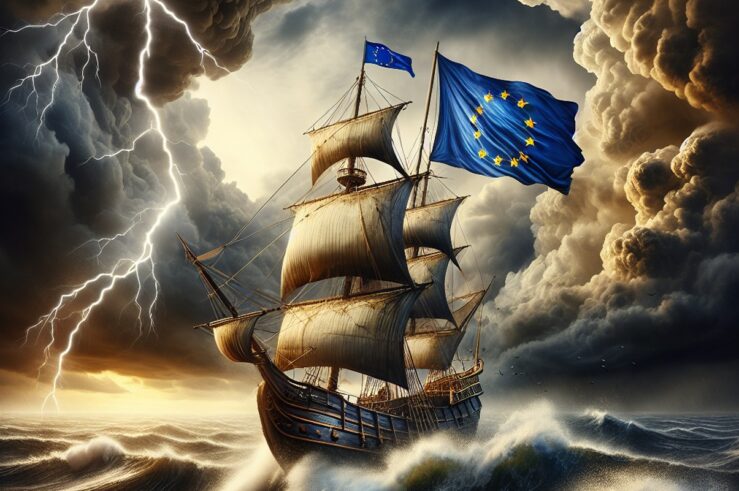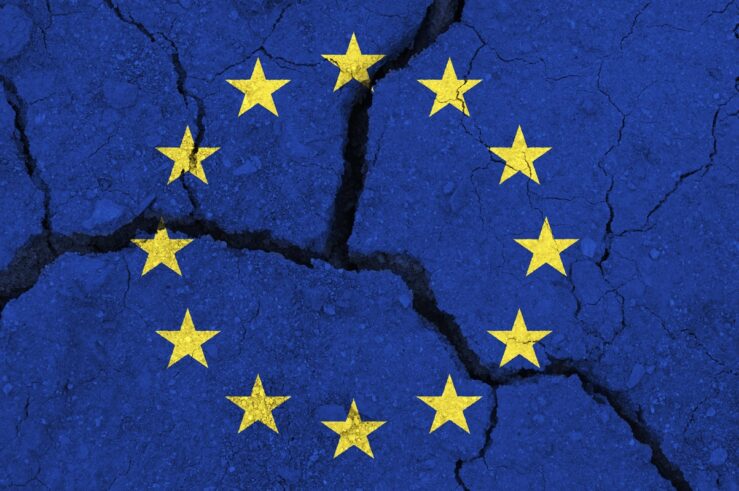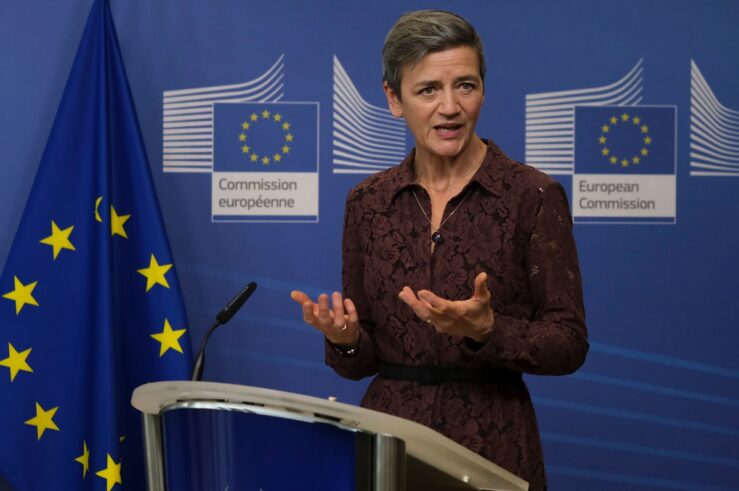European Competition Law Is Lost at Sea
Imagine a world where digital-competition policy was guided by a desire to foster startup activity, competitiveness and, ultimately, growth. Competition policymakers would promote market conditions that enable new digital services to rapidly launch, gain user traction, and achieve greater scale. All of this would improve productivity, drive down prices for existing services, and help to ... European Competition Law Is Lost at Sea
Don’t Believe the Hype (on Competition and AI)
As in the Public Enemy song that gives this post its title, the hype about alleged competition risks in the artificial intelligence (AI) “market” is a sequel—and not a good one—to the hyperbolic and dystopian view that has informed several recent antitrust-policy proposals and demands for tougher enforcement of competition laws, particularly in digital markets. ... Don’t Believe the Hype (on Competition and AI)
A Positive Agenda for Digital-Competition Enforcement
Reasonable people may disagree about their merits, but digital-competition regulations are now the law of the land in many jurisdictions, including the EU and the UK. Policymakers in those jurisdictions will thus need to successfully navigate heretofore uncharted waters in order to implement these regulations reasonably. In recent comments that we submitted to the UK’s ... A Positive Agenda for Digital-Competition Enforcement
AI Partnerships and Competition: Much Ado About Nothing?
Competition policymakers around the world have been expressing concerns about competition in emerging artificial-intelligence (AI) industries, with some taking steps to investigate them further. These fears are notably fueled by a sense that incumbent (albeit, in adjacent markets) digital platforms may use strategic partnerships with AI firms to stave off competition from this fast-growing field. ... AI Partnerships and Competition: Much Ado About Nothing?
The Future of the DMA: Judge Dredd or Juror 8?
When it was passed into law, the European Union’s Digital Markets Act (DMA) was heralded by supporters as a key step toward fairness and contestability in online markets. It has unfortunately become increasingly clear that reality might not live up to those expectations. Indeed, there is mounting evidence that European consumers’ online experiences have been ... The Future of the DMA: Judge Dredd or Juror 8?
The Broken Promises of Europe’s Digital Regulation
If you live in Europe, you may have noticed issues with some familiar online services. From consent forms to reduced functionality and new fees, there is a sense that platforms like Amazon, Google, Meta, and Apple are changing the way they do business. Many of these changes are the result of a new European regulation ... The Broken Promises of Europe’s Digital Regulation
Goodbye Margrethe, Hello Didier: What Next for European Competition Law?
European Commissioner for Competition Margrethe Vestager announced Sept. 5 that she was leaving her position after nearly a decade in charge, which for the last four years has also included holding the title of “executive vice president of the European Commission for a Europe fit for the Digital Age.” Her departure caps off an uncharacteristically ... Goodbye Margrethe, Hello Didier: What Next for European Competition Law?
Enforcing the DMA is Easier Said Than Done: Evidence From the Commission’s Draft Template for DMA Compliance Reports
The European Commission early last month published its draft template for DMA-compliance reports. This is the document that gatekeepers will periodically need to fill out, and which subsequently will be used to determine whether they comply with the European Union’s Digital Markets Act (DMA). The draft template is a missed opportunity to clarify some of ... Enforcing the DMA is Easier Said Than Done: Evidence From the Commission’s Draft Template for DMA Compliance Reports
If the UK Wants to Remain a Tech Leader, It Needs Less Regulation, Not More
Brexit was supposed to free the United Kingdom from Brussels’ heavy-handed regulation and red tape. But dreams of a Singapore-on-the-Thames are slowly giving way to ill-considered regulation that threatens to erode Britain’s position as one of the world’s leading tech hubs. The UK Competition and Markets Authority’s recent decision to block the merger of Microsoft ... If the UK Wants to Remain a Tech Leader, It Needs Less Regulation, Not More
Killer Acquisition or Leveling Up: The Use of Mergers to Enter Adjacent Markets
In the world of video games, the process by which players train themselves or their characters in order to overcome a difficult “boss battle” is called “leveling up.” I find that the phrase also serves as a useful metaphor in the context of corporate mergers. Here, “leveling up” can be thought of as acquiring another ... Killer Acquisition or Leveling Up: The Use of Mergers to Enter Adjacent Markets
Brussels Effect or Brussels Defect: Digital Regulation in Emerging Markets
The blistering pace at which the European Union put forward and adopted the Digital Markets Act (DMA) has attracted the attention of legislators across the globe. In its wake, countries such as South Africa, India, Brazil, and Turkey have all contemplated digital-market regulations inspired by the DMA (and other models of regulation, such as the ... Brussels Effect or Brussels Defect: Digital Regulation in Emerging Markets
Lina Khan’s Christmas Wish Is To Have Margrethe Vestager’s Powers
Federal Trade Commission (FTC) Chair Lina Khan has just sent her holiday wishlist to Santa Claus. It comes in the form of a policy statement on unfair methods of competition (UMC) that the FTC approved last week by a 3-1 vote. If there’s anything to be gleaned from the document, it’s that Khan and the ... Lina Khan’s Christmas Wish Is To Have Margrethe Vestager’s Powers















